Regulation
XRP Lawyer Says SEC Knows Ripple ODL Sales Are Not Investment Contracts
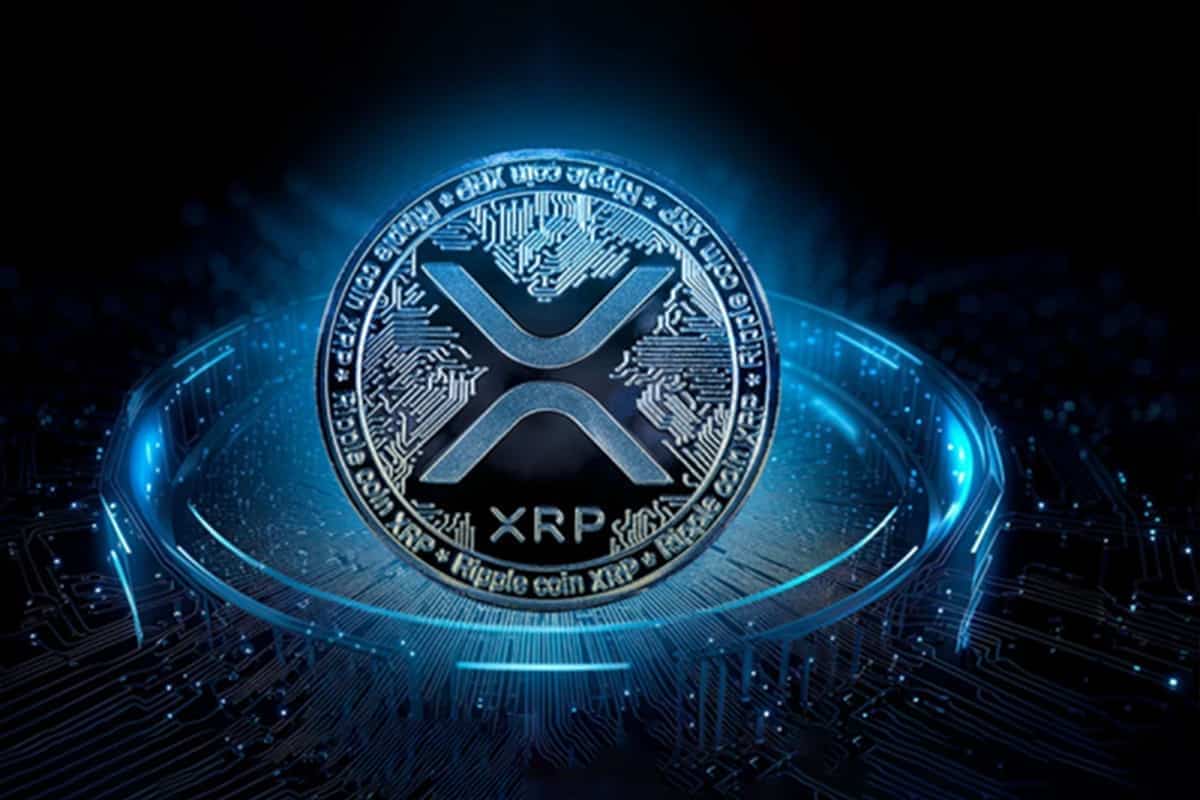
In a recent filing, the U.S. Securities and Exchange Commission (SEC) opposed Ripple’s motion to seal and redact evidence related to remedies briefing and documents. Moreover, the SEC urged the court to order the disclosure of Ripple’s business details from the agency’s March 22 remedies briefing.
However, Ripple had previously requested that financial reports, post-complaint XRP institutional sales details, and other sensitive information remain confidential due to the high risks to the firm. Amid the chaos, Bill Morgan, a pro-XRP advocate, underscored that the SEC alredy knows that Ripple’s On-demand Liquidity (ODL) sales aren’t investment contracts.
SEC Mentions Ripple ODL Sales In Filing
Pro-XRP lawyer Bill Morgan shared a snapshot from the SEC’s latest response. The snapshot highlighted, “The same is true for Ripple’s aged securities offering and sales information. Ripple wants to hide the extent to which it offered XRP at discriminatory prices. But the period when Ripple was offering discounts goes back to 2014 and ended in December 2020.”
It added, “Ripple has not shown how the discounts it offered four years ago or more would matter, particularly since Ripple seeks to avoid remedies by claiming it ‘has changed the way it sells XRP and changed its contracts.’” in addition, the SEC emphasized that Ripple’s current contracts are not the ones under scrutiny.
The agency further added, “Indeed, the contracts at issue are not ODL contracts—the only type of Institutional Sales contracts Ripple claims it enters into today… none of Ripple’s current contracts contain lockups. The redactions the SEC opposes thus do not reveal ‘long-term business plans of any kind.’”
Lawyer Explains SEC’s Stance On ODL Sales
Morgan elaborated on the SEC’s position, explaining, “The SEC clarifies that none of the sales to institutions with discounts were ODL contracts.” He added, “The SEC would have reviewed the ODL contracts and observed that they do not have discounts or the features referred to in the summary judgment that made institutional buyer contracts to be investment contracts according to judge Torres.”
Furthermore, Morgan pointed out a key distinction in the nature of ODL contracts. He noted that the ODL contracts require customers to buy XRP at market price and to use the tokens in ODL transactions. Moreover, he emphasized that these customers agree on not holding them as investments. Hence, he questioned why Judge Torres categorized these contracts similarly to other institutional agreements.
The lawyer speculated, “It remains a mystery why Judge Torres lumped them in with the other contracts with Institutions.” In addition, the pro-XRP attorney noted that the SEC knows that its stance on the ODL sales wrong. He stated, “I bet SEC knows the ODL contracts are not investment contracts.” This ongoing legal battle between the SEC and Ripple highlights the complexities surrounding cryptocurrency regulation and the definitions of securities.
Also Read: Ripple SEC Lawsuit: SEC Files Opposition to Sealing XRP Details, Here’s Everything
SEC Files Opposition Against Ripple
On Monday, May 20, the U.S. SEC filed a response opposing part of Ripple’s motion to seal and redact certain documents. The SEC argues that Ripple’s attempt to “conceal financial and securities sales information” is unlawful, as the information is crucial for the remedies phase and public understanding of the penalties.
Whilst, Ripple seeks to redact details such as the amount of its current assets, recent sales figures, revenues and expenses, and discounts offered to institutional investors. However, the SEC contends that these details are essential for determining penalties, injunctive relief, disgorgement, and investor harm. They argue that Ripple has not provided sufficient evidence that making this information public would cause significant harm.
Furthermore, the SEC states that the financial information in question is outdated and that some of it is already publicly available. The regulator also asserts that Ripple’s reliance on previous court sealing approvals does not apply to the current situation. The SEC maintains that transparency is necessary for the court’s decisions and public accountability.
Also Read: XRP Lawsuit: Ripple Moves 50M XRP Ahead Major Deadline, What’s Happening?
The presented content may include the personal opinion of the author and is subject to market condition. Do your market research before investing in cryptocurrencies. The author or the publication does not hold any responsibility for your personal financial loss.
Regulation
USDC Issuer Circle Set To File IPO In April, Here’s All

USDC issuer Circle is reportedly set to file its initial public offering (IPO) in April as part of the firm’s plans to finally go public. The stablecoin issuer is allegedly already working with top financial institutions to achieve this move.
Circle To File IPO In Late April
According to a Fortune report, Circle is looking to file its IPO in late April, although the listing period remains uncertain. The report noted that when a company files to go public, its shares usually begin trading four weeks later, indicating that the listing could occur in May. However, there is also a scenario where the IPO process could drag on for months.
The stablecoin issuer is reportedly working with investment banks JPMorgan Chase and Citi to achieve its long-anticipated IPO. The firm had previously tried to go public in 2021 under a SPAC arrangement with a shell company.
The US SEC failed to sign off on this arrangement back then, and the company eventually scrapped these IPO plans by the end of 2022 when the crypto exchange FTX collapsed and the broader crypto market experienced a downturn.
Revelation about Circle’s IPO plans comes just days after the stablecoin issuer partnered with NYSE’s parent company to explore USDC’s use in traditional finance (TradFi). Meanwhile, the USDC stablecoin recently launched in Japan following approval from the country’s regulator. Notably, USDC is the first and only global dollar stablecoin approved under Japan’s stablecoin framework.
An Easier Path Now For The Stablecoin Issuer
Circle will likely face less resistance for its IPO plans under the current SEC administration. Under acting Chair Mark Uyeda, the Commission has shown its willingness to work hand in hand with crypto firms, which was missing under Gary Gensler’s administration.
US SEC Chair nominee Paul Atkins has also shown his willingness to change the approach that Gensler’s administration adopted towards crypto firms. During his nomination hearing, the SEC Chair nominee promised to prioritize providing regulatory clarity for the industry.
Circle’s IPO listing would be the biggest since the top crypto exchange Coinbase went public in 2021. Interestingly, Coinbase owns an equity stake in the crypto firm.
The firm’s USDC is currently the second-largest stablecoin by market cap, only behind Tether’s USDT. The stablecoin industry is heating up as more financial institutions look to develop their own stablecoin.
Donald Trump’s World Liberty Financial recently revealed plans to launch its USD1 stablecoin, while asset manager Fidelity is also considering doing so.
Disclaimer: The presented content may include the personal opinion of the author and is subject to market condition. Do your market research before investing in cryptocurrencies. The author or the publication does not hold any responsibility for your personal financial loss.
Regulation
Japan Set To Classify Cryptocurrencies As Financial Products, Here’s All

Cryptocurrency investors in Japan are bracing for impact following a plan to reclassify digital assets as financial products. While the plan has elicited excitement from cryptocurrency enthusiasts in the Far East, the ambitious plan will have to scale several legislative hurdles.
Japan Targets Reclassification Of Cryptocurrencies As Financial Products
According to a report by Nikkei, Japan’s Financial Services Agency (FSA) is inching toward classifying cryptocurrencies as financial products. Per the report, the FSA intends to achieve the reclassification via an amendment to the Financial Instruments and Exchange Act.
Currently, digital assets in Japan are considered crypto assets conferred with property rights and seen as payment means. Under the FSA’s plans, cryptocurrencies in Japan will be treated as financial products in the same manner as traditional financial products.
The FSA says it will adopt a slow and steady approach toward the reclassification, carrying out “a private expert study group” to test the waters. If everything goes according to plan, the FSA will submit the amended bill to Parliament in early 2026.
The classification of cryptocurrencies as financial products will have far-reaching consequences for the local ecosystem. Experts say treating cryptocurrencies as financial products will bring Japan closer to a crypto ETF launch amid a changing regulatory landscape.
Furthermore, the move may lower current cryptocurrency taxation for local investors since existing capital market rules will apply to the asset class.
A Fresh Bill For Crypto Insider Trading Is Underway
Apart from the reclassification, the FSA disclosed plans for new legislation against insider trading. The move flows treating cryptocurrencies as financial products and will strengthen existing investor protection rules.
“It is a direction to establish a new insider trading regulation that prohibits trading based on unpublished internal information,” said the FSA. “We will develop laws to prevent unfair transactions.”
However, Japan’s cryptocurrency scene is heating up to a boil, driven by local and international players. Last week, stablecoin issuer Circle secured approval from the FSA for USDC with top exchanges set to list the stablecoin.
Japan’s Metaplanet has tapped Eric Trump to join its Strategic Board of Advisors as it continues to load up Bitcoin.
Disclaimer: The presented content may include the personal opinion of the author and is subject to market condition. Do your market research before investing in cryptocurrencies. The author or the publication does not hold any responsibility for your personal financial loss.
Regulation
Kentucky Governor Signs Off On ‘Bitcoin Rights’ Bill, Strengthening Crypto Protections


In what is being dubbed a major development in the crypto regulation space, the Governor of the US state of Kentucky, Andy Beshear, has signed the ‘Bitcoin Rights’ bill into law. The law promises to safeguard protections for Bitcoin (BTC) users.
Bitcoin Rights Bill Comes Into Effect
Crypto regulations continue to evolve under pro-crypto US President Donald Trump’s administration. In the latest development, Kentucky has become the newest state to enshrine protections for digital asset users.
In an X post published on March 24, crypto advocacy group Satoshi Action Fund announced that Governor Beshear had signed the much-anticipated Bitcoin Rights bill into law. The post stated:
The right to self-custody, run a node, and use of digital assets is now protected for millions of Americans without fear of discrimination.
The bill was first introduced to the Kentucky House by Rep. Adam Bowling on February 19. According to the bill’s description, it seeks to safeguard users’ rights to use digital assets and self-custody wallets. Additionally, it aims to prohibit local zoning changes that discriminate against crypto mining operations.
The legislation outlines guidelines for running a digital asset node and excludes digital asset mining from money transmitter license requirements. It also clarifies that crypto mining or staking is not considered an offer or sale of securities.
On February 28, the bill passed Kentucky’s House of Representatives with a unanimous vote of all 91 representatives in favor. It later passed the Kentucky Senate on March 13, receiving backing from all 37 senators.
Kentucky’s proactive stance toward cryptocurrencies isn’t new. Earlier this year, the state became the 16th US state to introduce legislation seeking to create a Bitcoin strategic reserve.
Meanwhile, neighboring state Arizona is also joining the crypto movement. A recent X post by Bitcoin Laws revealed that Arizona’s House Rules Committee has passed two Bitcoin reserve bills — SB1373 and SB1025. These bills will now head to a full floor vote.
Renewed Optimism Under Trump Administration
Following Trump’s victory in the November presidential election, cryptocurrency regulations in the US are evolving rapidly, with many states introducing legislation aimed at strengthening their digital asset ecosystems and attracting crypto businesses.
Positive changes in crypto regulations are encouraging industry businesses to expand. For instance, leading crypto trading platform Coinbase recently announced plans to hire 1,000 employees in the US.
The Trump administration has also witnessed several lawsuits being dropped against major crypto entities, including Kraken, Coinbase, Gemini, and others. At press time, Bitcoin trades at $87,399, down 0.2% in the past 24 hours.

Featured Image from Unsplash.com, chart from TradingView.com

Editorial Process for bitcoinist is centered on delivering thoroughly researched, accurate, and unbiased content. We uphold strict sourcing standards, and each page undergoes diligent review by our team of top technology experts and seasoned editors. This process ensures the integrity, relevance, and value of our content for our readers.
-
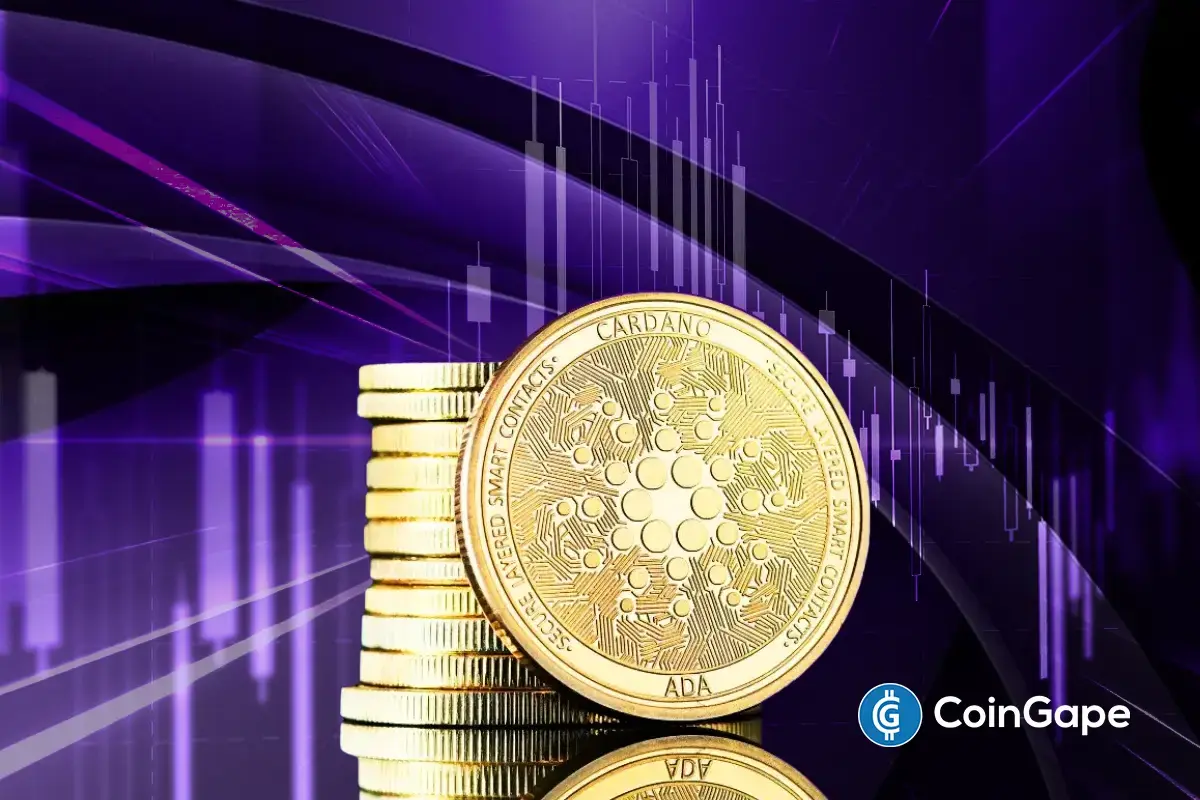
 Altcoin24 hours ago
Altcoin24 hours agoCardano Price Eyes Massive Pump In May Following Cyclical Patern From 2024
-

 Market20 hours ago
Market20 hours agoBitcoin Bears Tighten Grip—Where’s the Next Support?
-

 Market19 hours ago
Market19 hours agoEthereum Price Weakens—Can Bulls Prevent a Major Breakdown?
-

 Ethereum15 hours ago
Ethereum15 hours agoEthereum Is ‘Completely Dead’ As An Investment: Hedge Fund
-

 Market9 hours ago
Market9 hours agoBitcoin Mining Faces Tariff Challenges as Hashrate Hits New ATH
-

 Market15 hours ago
Market15 hours agoThis Is How Dogecoin Price Reacted To Elon Musk’s Comment
-

 Regulation8 hours ago
Regulation8 hours agoUSDC Issuer Circle Set To File IPO In April, Here’s All
-

 Bitcoin14 hours ago
Bitcoin14 hours agoUS Macroeconomic Indicators This Week: NFP, JOLTS, & More


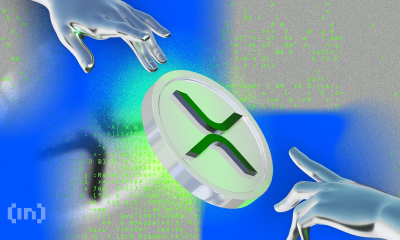



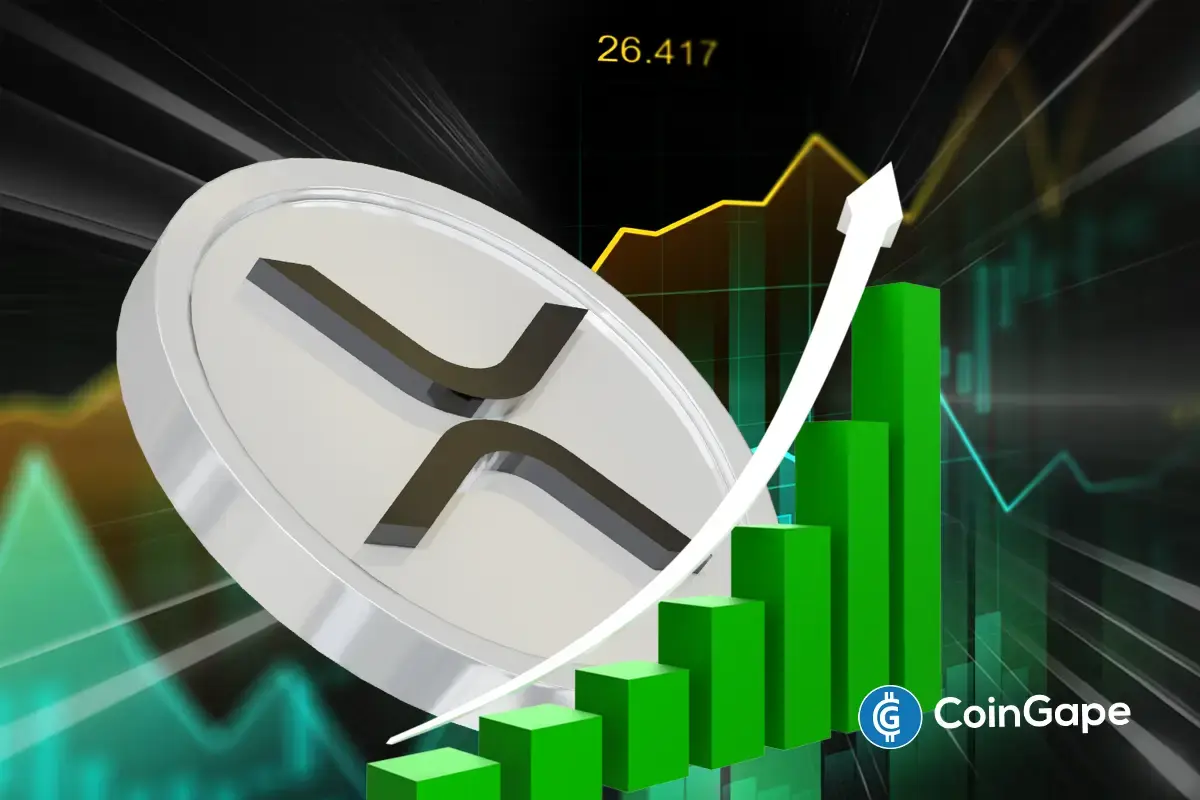
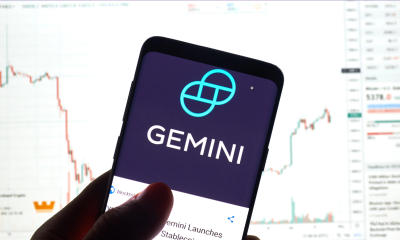















✓ Share: